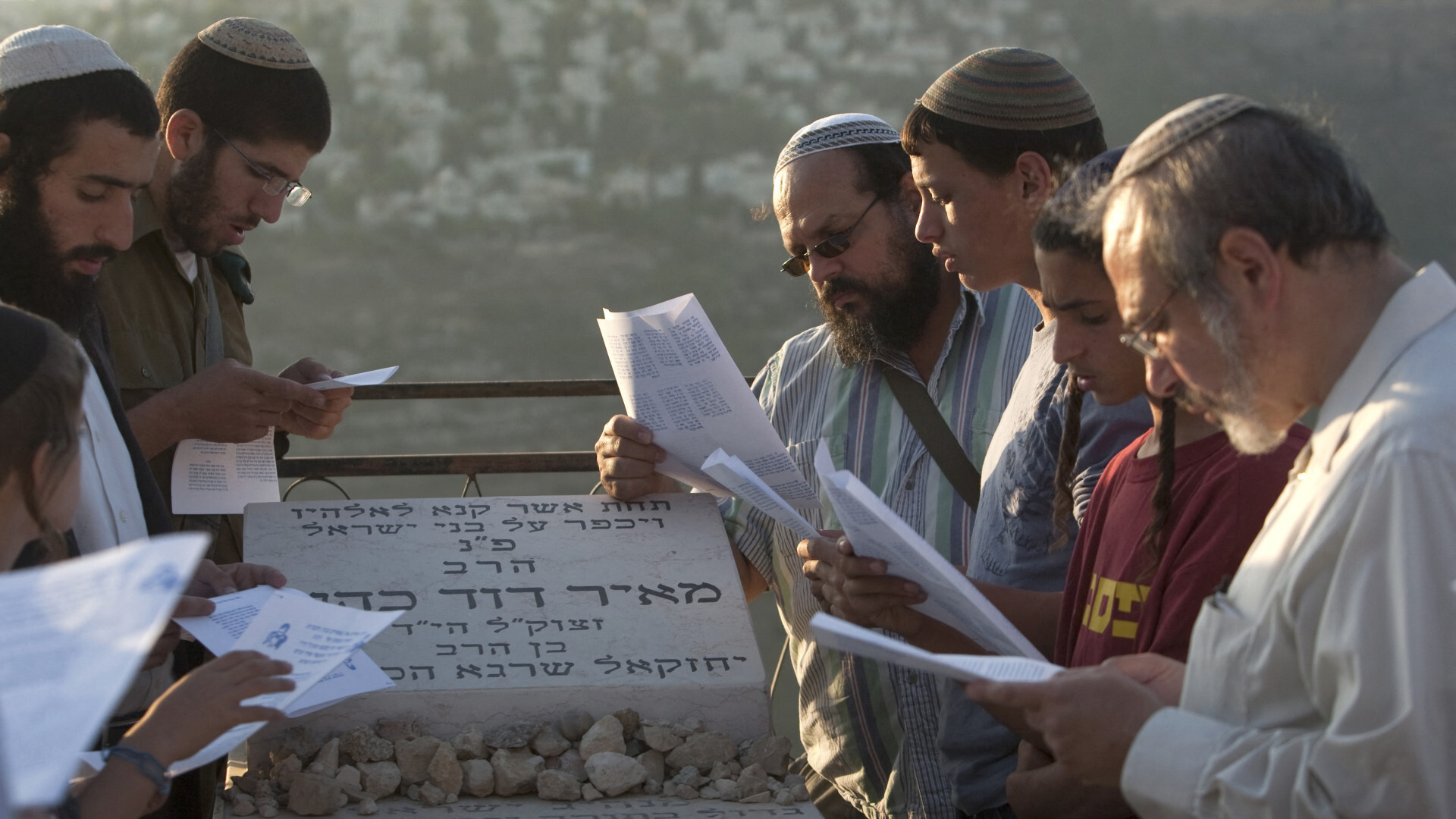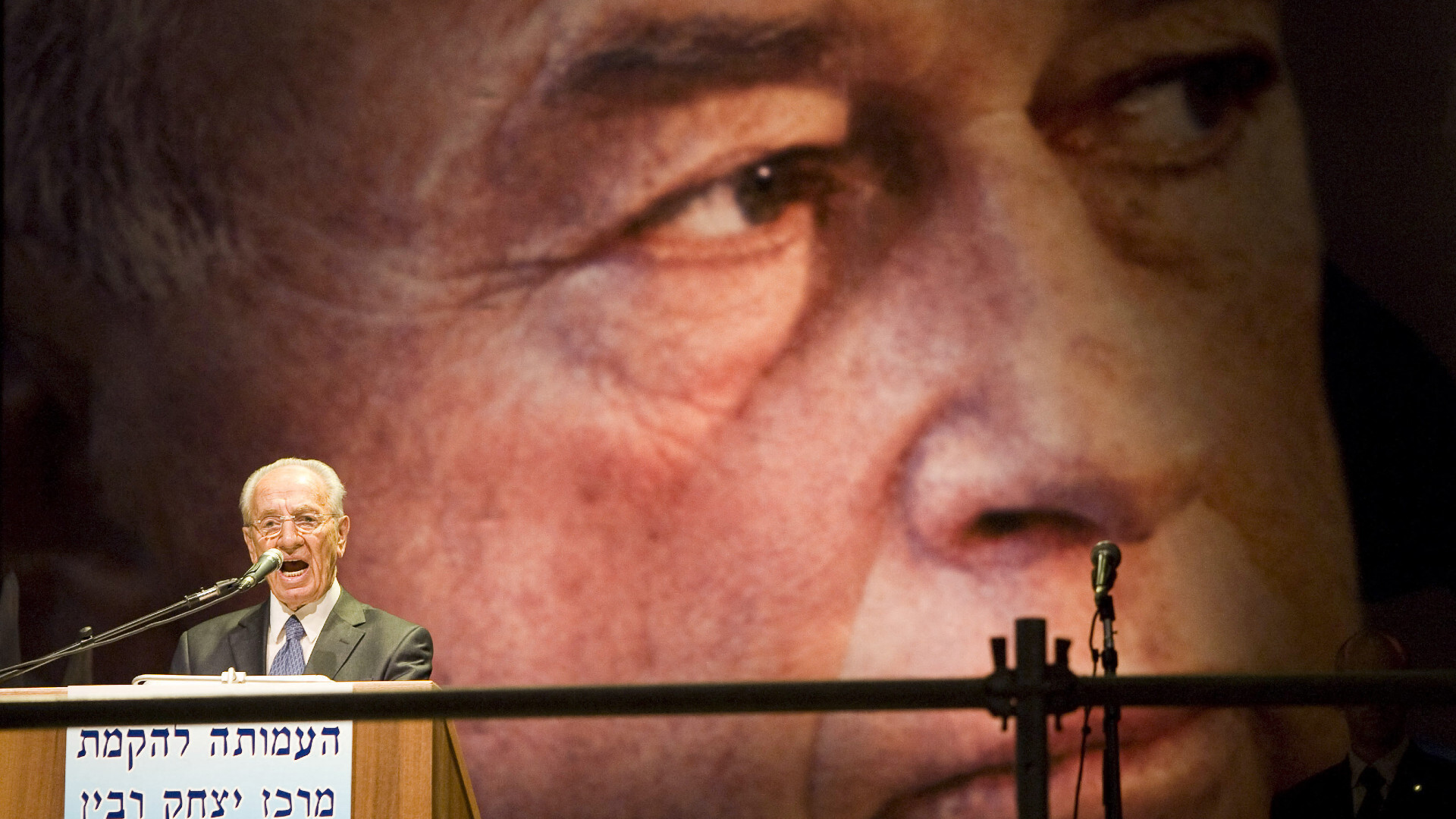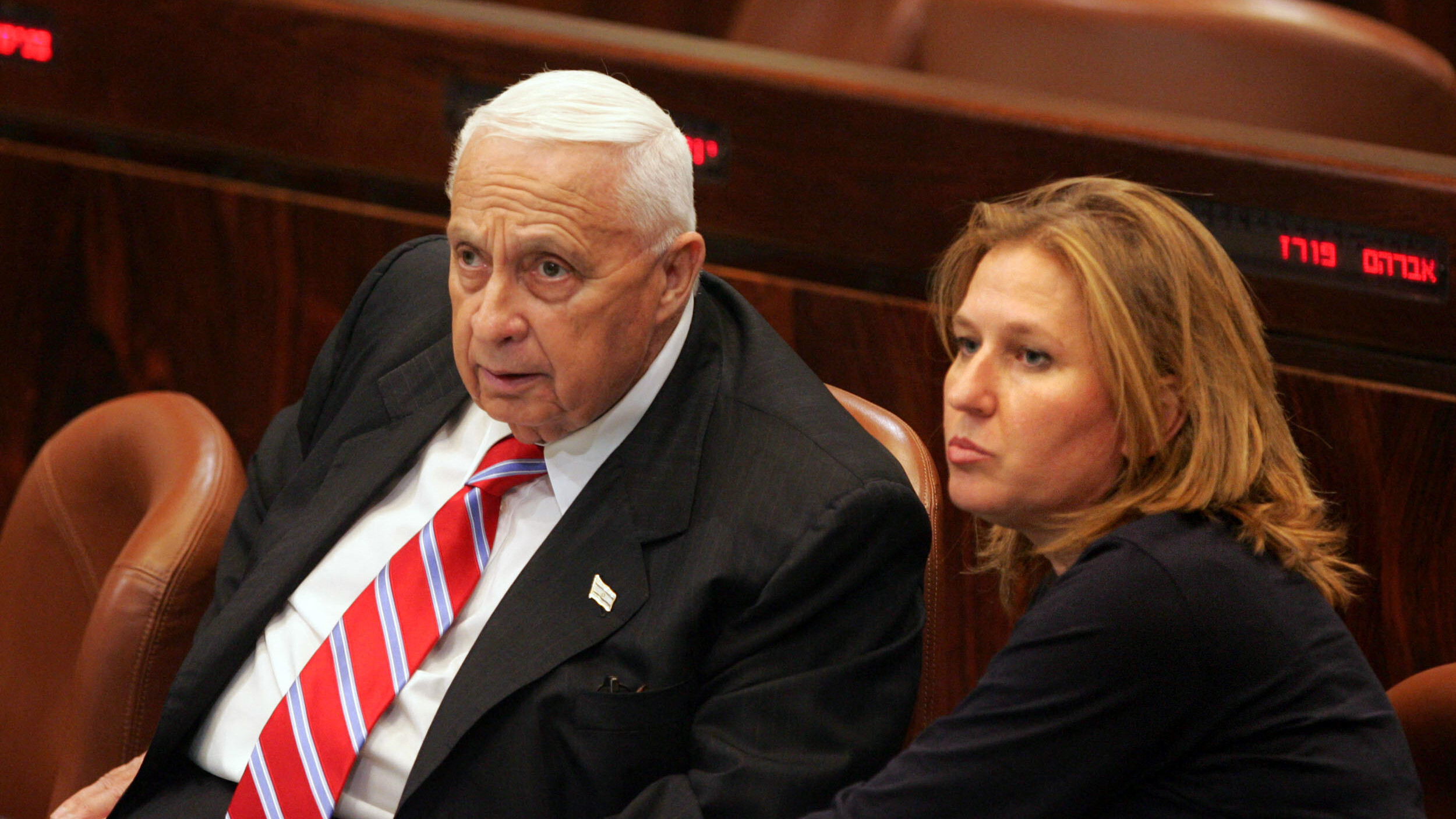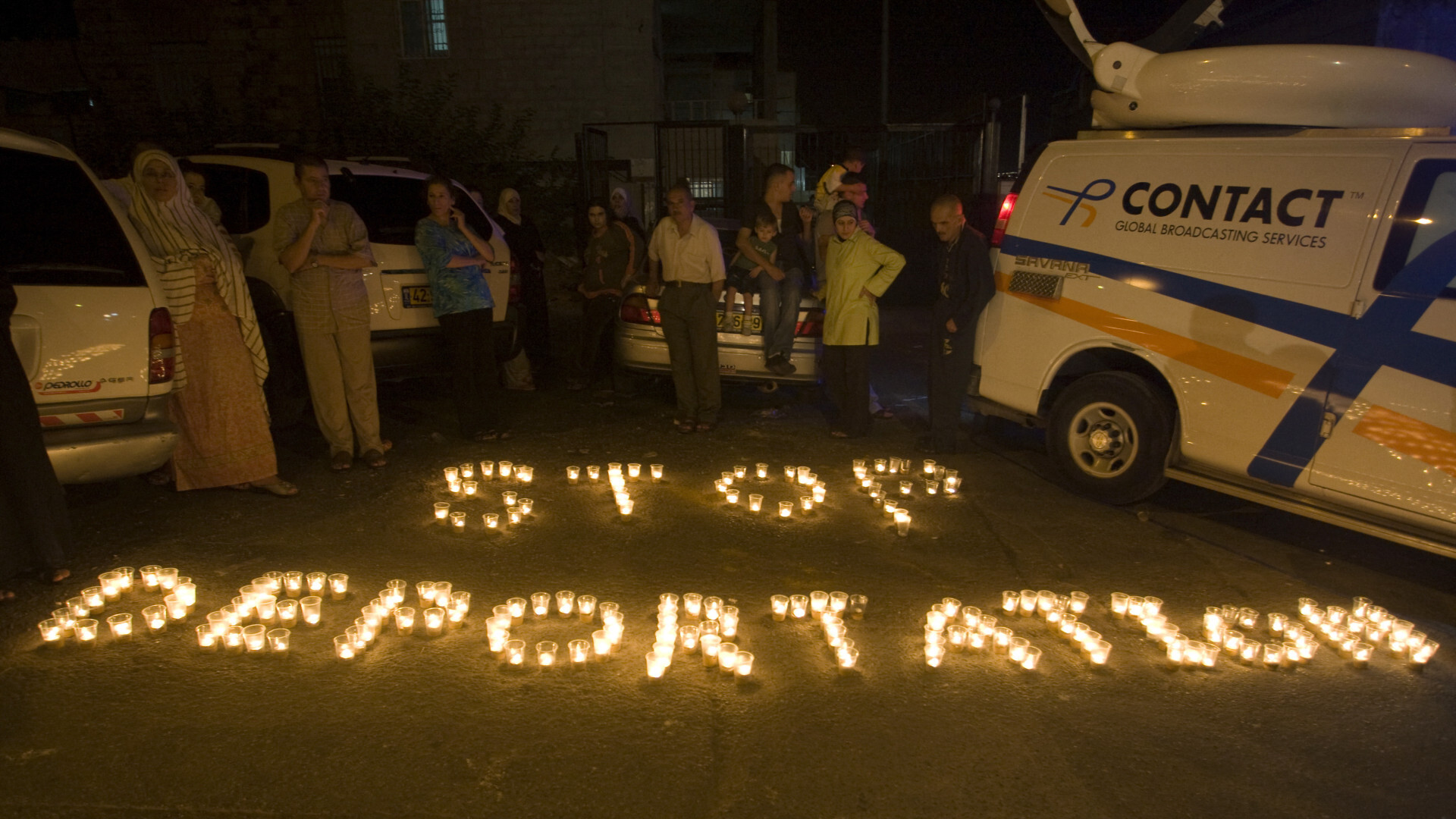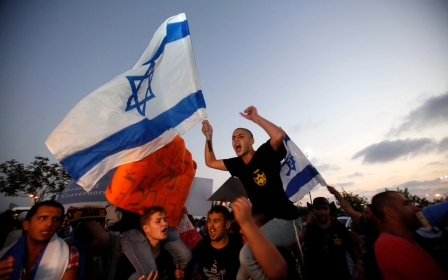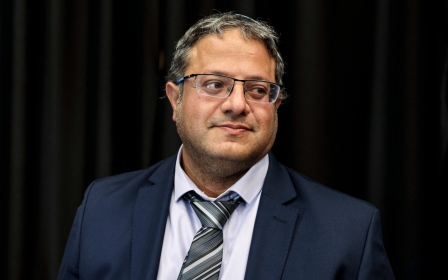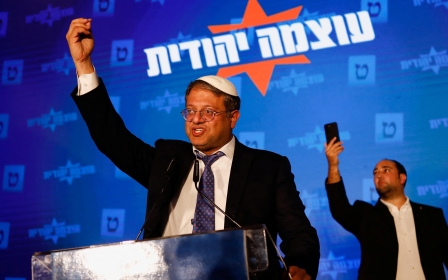Israel: Five of Itamar Ben-Gvir's most outrageous moments
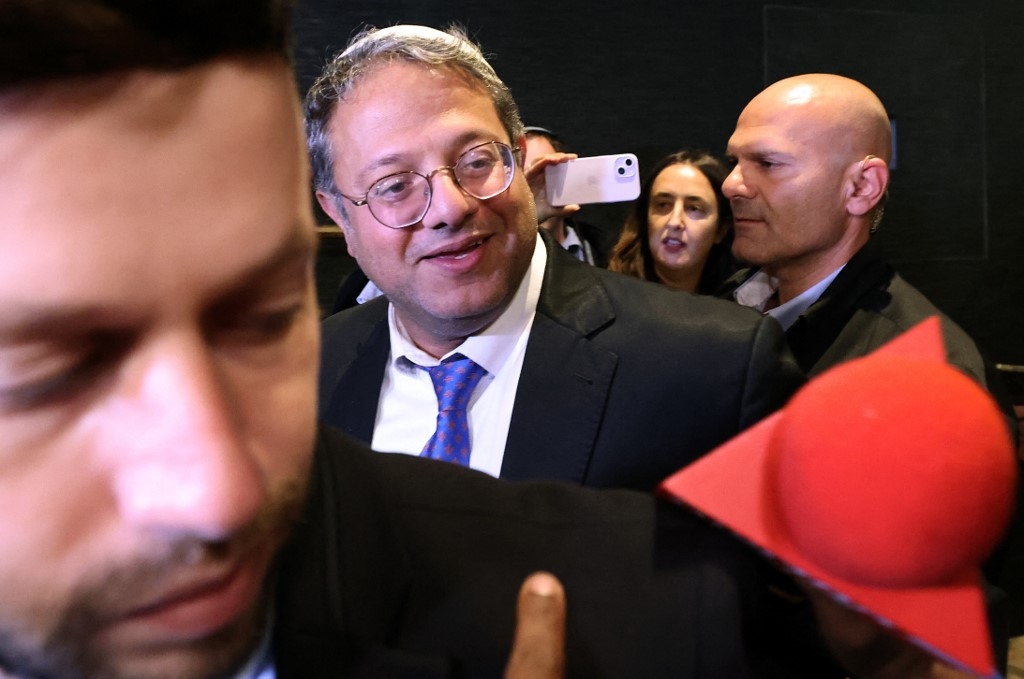
Itamar Ben-Gvir, the leader of Israel's Jewish Power faction, spent election day on Tuesday in a good mood, greeting voters at a polling station and posing for pictures.
Alongside ally Bezalel Smotrich, the far-right politician had scored an unprecedented win. Their political alliance, Religious Zionism, had won 14 seats in the Israeli parliament, a remarkable improvement on the four they won in 2021.
Ben-Gvir, 46, who never served in the Israeli army, has demanded to be appointed as a public security minister - effectively taking charge of the police - in the government to be formed by Benjamin Netanyahu, whose Likud party has won 32 seats.
In the past year, the controversial MP has spearheaded settler stormings of the Al-Aqsa compound, moved his parliamentary office to a yard next to a Palestinian house - whose residents are threatened with settler expulsion - and called Haaretz "the newspaper of Hamas".
Ben-Gvir, who lives in the illegal settlement of Kiryat Arba in the Palestinian city of Hebron, tweeted on Wednesday, "Good morning, people of Israel."
New MEE newsletter: Jerusalem Dispatch
Sign up to get the latest insights and analysis on Israel-Palestine, alongside Turkey Unpacked and other MEE newsletters
"The time has come for a full-fledged rightwing government. It's time to be the landlords in our country!" he added.
Middle East Eye looks at five factors behind Ben-Gvir's unexpected political rise.
The Kahanist teen
Ben-Gvir's political ideas are influenced by Meir Kahane, an influential rabbi, former MP, and founder of the Kach party, which wants to establish a pure Jewish society.
Aged 16, Ben-Gvir joined Kach as an activist before it was designated a terror group by the United States and banned in Israel, when in 1994 a Kach member killed dozens of Palestinian worshippers in the Ibrahimi mosque in Hebron.
(Last May, the US State Department removed Kach, also known as Kahane Chai, from the Foreign Terrorist Organizations list, saying the group "no longer engaged in terrorism".)
Ben-Gvir had also acted as a lawyer defending activists from Lehava, an anti-miscegenation group, which has called for the full expulsion of Palestinians and a ban on Christmas. It views churches as places of idol worship.
In May, Israel's Defence Minister Benny Gantz floated the idea to label Lehava a "terror group" after it organised a march in Jerusalem while its members shouted "Death to Arabs".
'We got to his car'
Ben-Gvir's disdain of any peace with the Palestinians is also clear in his hostility towards former Israeli Prime Minister Yitzhak Rabin.
Rabin was killed while getting into his car in 1995, by a Jewish extremist at a rally in Tel Aviv - retaliation for signing a peace agreement two years earlier with Yasser Arafat, the chairman of the Palestinian Liberation Organization.
Ben-Gvir, Netanyahu and other rightwing figures who stood against the peace agreement organised a rally in Jerusalem's Zion Square a month before Rabin's killing, during which protesters shouted "Death to Rabin".
A photo of Ben-Gvir carrying an emblem from Rabin's car was republished recently. Ben-Gvir reportedly said, "We got to his car, and we'll get to him too."
Ben-Gvir's hatred of Rabin, who won the Nobel Peace prize alongside Arafat and Shimon Peres for the peace deal, extended to his family. Ben-Gvir, identified as only a "right-wing activist" by an Israeli TV report, was filmed in August 2012 harassing Rabin's granddaughter and demanding she ask Israelis for "forgiveness".
Celebrating Ariel Sharon's stroke
Ben-Gvir's virulent objection to peace or compromise with the Palestinians has also drawn right-wing politicians into his sights.
Ariel Sharon, former Israeli prime minister and a Likud leader, decided in 2005 to dismantle illegal Israeli settlements in the Gaza Strip and evacuate settlers, as part of a long-term military plan to besiege Palestinians in the enclave.
Israeli settlers in the occupied West Bank loathed the decision, and when Sharon suffered a stroke and fell into a coma in 2006, Ben-Gvir celebrated with a feast and a barbecue.
"We are, of course, happy," he said then. "We hope there is a message here to everyone who wants to harm the land of Israel: the land of Israel is more powerful than all of you," Ben-Gvir told a TV reporter while cooking meat.
'Those against the state will be deported'
Ben-Gvir has made no secret of wanting to deport Palestinians from their lands and homes. He also wants to expel politicians deemed "disloyal" to Israel, a reference to Knesset members who represent Palestinian citizens of Israel and left-leaning Israeli MPs.
“When we form the government, I will promote the Deportation Law, which will deport anyone who acts against the State of Israel or IDF soldiers,” Ben-Gvir said in an interview last August.
“Those who throw stones and Molotov cocktails at soldiers will be deported from here. Those who work against the state, like Ofer Cassif, will be deported. Maybe to Europe. They need working hands there.”
Cassif is the sole Jewish MP for the left-wing, pro-Palestinian Joint List party. Ben-Gvir had previously said the law would not apply to Jews.
He also mentioned the Joint List alliance leader Ayman Odeh as someone he would deport "on a train", as well as members of the anti-Zionist ultra-Orthodox Neturei Karta sect.
Pulling a gun on Palestinians
Ben-Gvir pulled a gun on residents of the Palestinian neighbourhood of Sheikh Jarrah in occupied East Jerusalem in October.
Earlier that day, he had tweeted a video of a man throwing a stone at an Israeli settler in Sheikh Jarrah in front of police, writing that: "Instead of shooting or arresting him, the officer is content to push him back. I am now on my way to the place to protect the Jewish residents. Enough of the promiscuity."
Soon afterwards, Ben-Gvir appeared in Sheikh Jarrah with a group of settlers who tried to storm the house of a Palestinian, and slashed car tyres in the neighbourhood.
As Palestinians began to hurl stones at Ben-Gvir and the group, and officers began escorting him away, the politician pulled a gun, telling the officers: "If they are throwing stones, shoot them."
Ben-Gvir has previous. Last December, he pulled a gun on two Palestinian security guards in a Tel Aviv car park. The quarrel started when Ben-Gvir's driver parked in an undesignated spot. The two Palestinians appeared to ask Ben-Gvir not to park in a prohibited area. But within minutes he pulled out his gun, yelling at one of the guards: "I'll take care of you."
Ben-Gvir was on his way to an event by Rabbi Meir Mazuz, a controversial figure who recently blamed Soviets and Reform Jews for destroying "the people of Israel”.
This article is available in French on Middle East Eye French edition.
Middle East Eye delivers independent and unrivalled coverage and analysis of the Middle East, North Africa and beyond. To learn more about republishing this content and the associated fees, please fill out this form. More about MEE can be found here.


